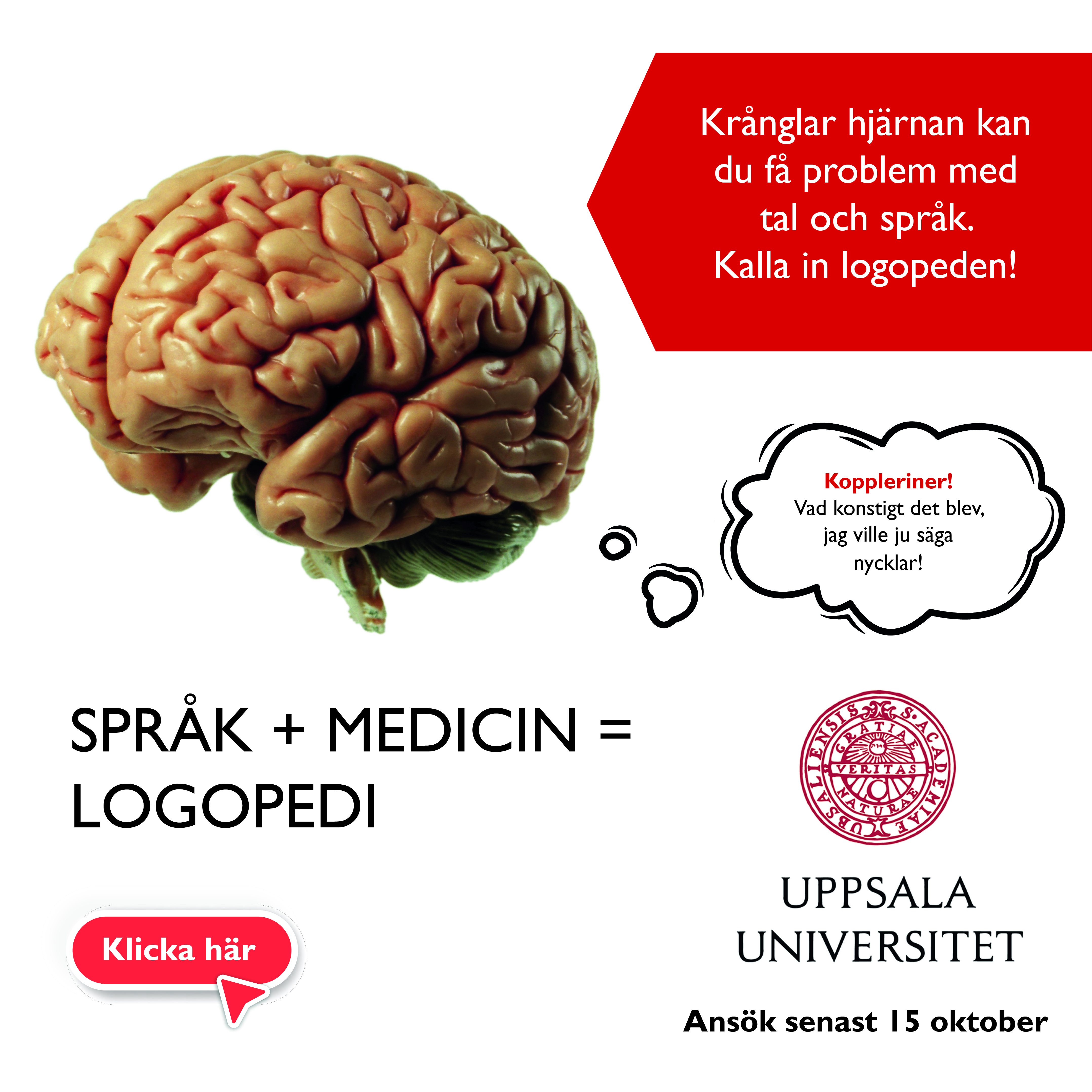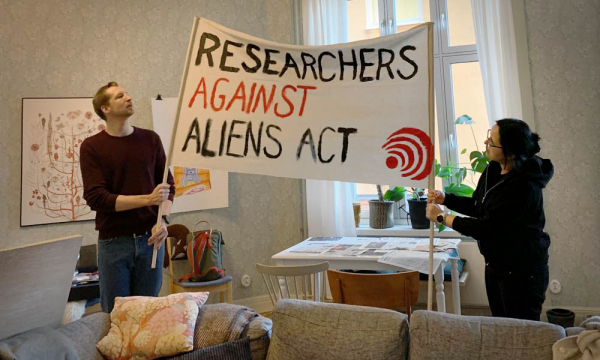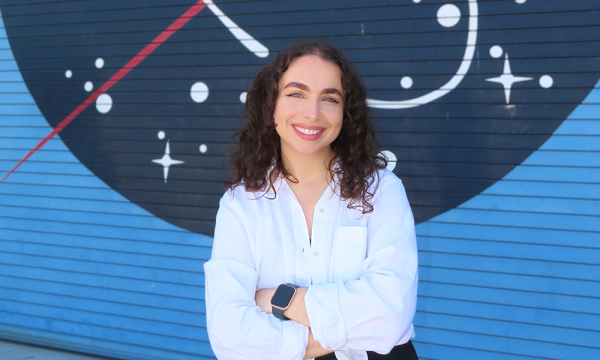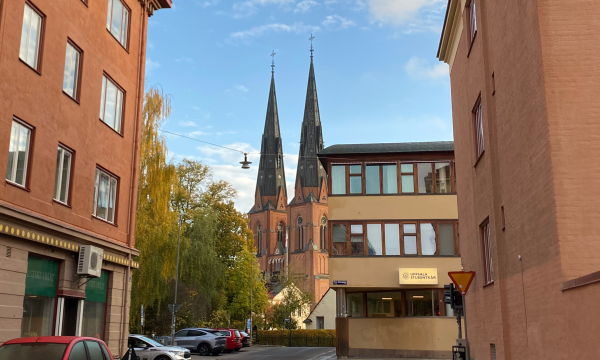
Took action against the Aliens Act
– The rules of the game changed as the game was going, said PhD student Georgii Shamuilov who took part in the protests.
The researchers’ manifestation against The New Aliens Act isn’t the only demonstration going on in central Uppsala on Saturday. A few hundred metres away, a march to protest the war on Ukraine has rallied around 1 500 people.
Though the turnout for the demonstration on Gamla Torget, initiated by Uppsala University Doctoral Board, isn’t nearly as large, there are still around 70 or so attendees gathered around Oliver Degerstedt, chairperson of the Doctoral Board, when the peaceful manifestation starts. Even Uppsala University’s Vice-Chancellor, Anders Hagfeldt, is spotted among the listeners.
– We’re here to protest the Aliens Act and to show our support for those affected by it. It’s damaging the lives of many hard working people, says Oliver Degerstedt.
The New Aliens Act has made it very difficult for PhD students from countries outside of EU/EES to gain a permanent residence permit after they have finished their doctoral studies, meaning many of them have to leave Sweden when they are done (you can read more about the Aliens Act and the background to the protest in this article).

PhD student Georgii Shamuilov. (Photo: Lina Svensk)
One of the listeners is Georgii Shamuilov, a PhD student in Physics at Uppsala University. He comes from Siberia and will defend his thesis in just a month. He says he was upset when he found out about the New Aliens Act which came into force in July last year.
– The rules of the game changed as the game was going, he says.
His plan is still to stay in Sweden when he is done, though now he is uncertain he will be able to. He says he hopes he will find work in the industries.
Do you think they will change the law to make it easier for international PhD students to stay in the country?
– Eventually, yes. In five or ten years they will notice how the Swedish universities will have dropped in the international rankings and then they will do something about it, says Georgii Shamuilov.

Photo: Lina Svensk
Up on the podium – in actuality it’s the top of the stairs to the entrance of Gamla Torget 2 – the speakers relieve one another. Many of them speak from their own experience, as PhD students affected by the new act, while others offer their support and solidarity.

PhD Student Boris Karatsolis. (Photo: Lina Svensk)
Boris Karatsolis, PhD student at the Department of Earth Sciences, is there to show support for his colleagues. He is himself from Greece and is not directly affected by the act.
– It’s really unfair. We have started out with the same rights and prospects – we pay the same taxes, do the same amount of work – and in the end not everyone will have the same opportunity to stay in Sweden, he says.
He doesn’t know anyone who has yet been deported due to the new act, but know many who might be if they don’t find long-term employment when they are done with their doctoral studies.
– The atmosphere within the department has changed. People are getting more and more stressed out which also affects those of us who aren’t at risk of having to leave the country, he says.

PhD student Faranak Tootoonchi. (Photo: Lina Svensk)
Boris Karatsolis has come to the protest with several other PhD students from the Department of Earth Sciences. One of them is Faranak Tootoonchi from Iran.
– When I first heard about the New Aliens Act I thought “this can’t be happening in Sweden. They will come up with a solution, it must be a mistake”, she says.
She has ten months left until she has finished her doctoral studies and her hope is to stay in Sweden, though she says the job market outside of academia for someone in her field is quite limited.
– I have been paying a-kassa and saving for my pension and now I might have to leave. What makes it even worse is that my partner, who is also from Iran, will have to stay here to finish his PhD even if I have to leave. He came here for my sake, because I got a PhD position and he came after me. And now I’m losing the grounds I asked him to come for, she says.
The New Aliens Act treats everyone who applies for a permanent residence permit separately, so it doesn’t matter if a partner, or even a spouse, fulfils the income requirements as you don’t automatically get a residence permit just because a family member gets one.
Faranak Tootoonchi wants to stay working in academia, but competition is really tough. Should she look for jobs outside of academia though, she says that many employers in her field require that you already have a permanent residence permit, which creates a catch 22 scenario for those who need employment to gain a permanent residence permit.
She describes her current situation as a kind of limbo, which affects not only her, but also those around her.
– It’s affecting my thesis supervisor as well. She feels a lot of pressure to help me so I can stay here long term. It’s a very stressful situation.
Faranak Tootoonchi still hopes that there may be a solution to this problem, that they might find a way to handle the permanent residence applications differently.
– I think the Migration Office are nearing their limits of how many of these cases they can handle. They have to consider all applications separately and I think it might be turning out to be too much for them.
As the set list of speakers has come to an end, some of the people in the audience take to the podium for impromptu speeches before the manifestation ends by everyone marching in a procession through central Uppsala, waving their signs in the air:
“We aren’t aliens”
“Ingen forskning utan forskare”
“Research has no borders”

Photo: Lina Svensk

















